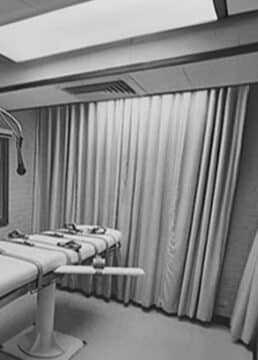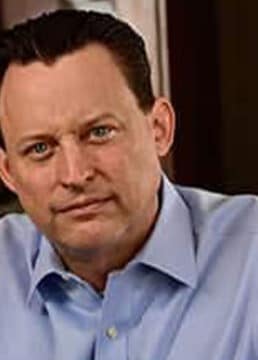Bank Fraud
Mail, Bank, and Wire Fraud
Under Federal Law “There are two elements in mail fraud: (1) having devised or intending to devise a scheme to defraud (or to perform specified fraudulent acts), and (2) use of the mail for the purpose of executing, or attempting to execute, the scheme (or specified fraudulent acts).” Schmuck v. United States, 489 U.S. 705, 721 n. 10 (1989); see also Pereira v. United States, 347 U.S. 1, 8 (1954) (“The elements of the offense of mail fraud under . . . § 1341 are (1) a scheme to defraud, and (2) the mailing of a letter, etc., for the purpose of executing the scheme.”); Laura A. Eilers & Harvey B. Silikovitz, Mail and Wire Fraud, 31 Am. Crim. L. Rev. 703, 704 (1994) (cases cited).
The elements of wire fraud under Section 1343 directly parallel those of the mail fraud statute, but require the use of an interstate telephone call or electronic communication made in furtherance of the scheme. United States v. Briscoe, 65 F.3d 576, 583 (7th Cir. 1995) (citing United States v. Ames Sintering Co., 927 F.2d 232, 234 (6th Cir. 1990) (per curiam)); United States v. Frey, 42 F.3d 795, 797 (3d Cir. 1994) (wire fraud is identical to mail fraud statute except that it speaks of communications transmitted by wire); see also, e.g., United States v. Profit, 49 F.3d 404, 406 n. 1 (8th Cir.) (the four essential elements of the crime of wire fraud are: (1) that the defendant voluntarily and intentionally devised or participated in a scheme to defraud another out of money; (2) that the defendant did so with the intent to defraud; (3) that it was reasonably foreseeable that interstate wire communications would be used; and (4) that interstate wire communications were in fact used) (citing Manual of Model Criminal Jury Instructions for the District Courts of the Eighth Circuit 6.18.1341 (West 1994)), cert. denied, 115 S.Ct. 2289 (1995); United States v. Hanson, 41 F.3d 580, 583 (10th Cir. 1994) (two elements comprise the crime of wire fraud: (1) a scheme or artifice to defraud; and (2) use of interstate wire communication to facilitate that scheme); United States v. Faulkner, 17 F.3d 745, 771 (5th Cir. 1994) (essential elements of wire fraud are: (1) a scheme to defraud and (2) the use of, or causing the use of, interstate wire communications to execute the scheme), cert. denied, 115 S.Ct. 193 (1995); United States v. Cassiere, 4 F.3d 1006 (1st Cir. 1993) (to prove wire fraud government must show (1) scheme to defraud by means of false pretenses, (2) defendant’s knowing and willful participation in scheme with intent to defraud, and (3) use of interstate wire communications in furtherance of scheme); United States v. Maxwell, 920 F.2d 1028, 1035 (D.C. Cir. 1990) (“Wire fraud requires proof of (1) a scheme to defraud; and (2) the use of an interstate wire communication to further the scheme.”).
The Federal Statute reads, “Whoever, having devised or intending to devise any scheme or artifice to defraud, or for obtaining money or property by means of false or fraudulent pretenses, representations, or promises, or to sell, dispose of, loan, exchange, alter, give away, distribute, supply, or furnish or procure for unlawful use any counterfeit or spurious coin, obligation, security, or other article, or anything represented to be or intimated or held out to be such counterfeit or spurious article, for the purpose of executing such scheme or artifice or attempting so to do, places in any post office or authorized depository for mail matter, any matter or thing whatever to be sent or delivered by the Postal Service, or deposits or causes to be deposited any matter or thing whatever to be sent or delivered by any private or commercial interstate carrier, or takes or receives therefrom, any such matter or thing, or knowingly causes to be delivered by mail or such carrier according to the direction thereon, or at the place at which it is directed to be delivered by the person to whom it is addressed, any such matter or thing, shall be fined under this title or imprisoned not more than five years, or both. If the violation affects a financial institution, such person shall be fined not more than $1,000,000 or imprisoned not more than 30 years, or both.”
Practice Areas
Federal Crimes
Sex Crimes
Federal Sex Crimes
Texas State Sex Crimes
Federal Drug Crimes
Drug Crimes
Assault
Domestic Violence
Federal Fraud
Health Care Fraud
Firearms Crimes
Child Pornography
Federal Criminal Appeals
Immigration Crimes
Criminal Appeals
Murder/Homicide
White Collar Crimes
DUI/DWI
Bank Fraud
Mortgage Fraud
Securities Fraud
Money Laundering
Laser Pointing Crimes
Acting Unruly on Airplane
Use Of Extraneous Offense Evidence In Child Sexual Assault
Take the first step toward protecting your freedom by contacting us now
Testimonials
John T. Floyd is Board Certified in Criminal Law By the Texas Board of Legal Specialization
Recent Blog Posts
Posted By: John Floyd
Justice Clarence Thomas Belittles Evidence of Actual Innocence of Man Condemned to [...]
Richard Glossip was convicted and sentenced to death for being a party to the January 6, 1997, murder…
Posted By: John Floyd
“Custodial Interrogation Environment” Does Not Trigger Need for Miranda Warning
Miranda v. Arizona, probably the most recognized case in U.S. Supreme Court jurisprudence, has been controversial since it…
Request A Confidential Consultation
Fields marked with an * are required
"*" indicates required fields





















